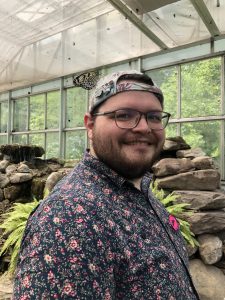GRIB 2024 Speakers
Invited Keynote Speakers
Research Keynote: Dr. Joy L. Pate
C. Lee Rumberger and Family Chair in Agricultural Sciences Emerita
“Curiosity Drives Creative Science: What I Learned from Pursuing Questions About the Ovary”
 Joy Pate received her B.S. from the University of Delaware and PhD from the University of New Hampshire. She served on the faculty of The Ohio State University from 1983-2008, and from 2008 as Professor and the C. Lee Rumberger and Family Chair in Agricultural Sciences at The Pennsylvania State University. She has served as President, Secretary and Board Member of The Society for the Study of Reproduction and received the Distinguished Service Award from SSR in 2011, the Trainee Mentor Award in 2021 and was named a Distinguished Fellow of SSR in 2022. She has served on the Editorial Boards of Biology of Reproduction, Reproduction, Domestic Animal Endocrinology, Journal of Reproductive Immunology and American Journal of Reproductive Immunology and on NIH and USDA study sections. She has been involved in undergraduate and graduate teaching throughout her career. Her research has focused on the function of the corpus luteum. Studies on expression of class II MHC molecules in the CL, activation of T lymphocytes by luteal steroidogenic cells, and functional programming of luteal-resident immune cells have helped to define the importance of cell-cell communication in tissue homeostasis and regulation of luteal lifespan. A more recent focus of her laboratory has been the potential role of microRNA in regulation of differentiation and rescue of the corpus luteum, which has led to her current fascination with mechanisms associated with luteal maintenance in early pregnancy. Her research has been funded through USDA and NIH grants continuously since 1985.
Joy Pate received her B.S. from the University of Delaware and PhD from the University of New Hampshire. She served on the faculty of The Ohio State University from 1983-2008, and from 2008 as Professor and the C. Lee Rumberger and Family Chair in Agricultural Sciences at The Pennsylvania State University. She has served as President, Secretary and Board Member of The Society for the Study of Reproduction and received the Distinguished Service Award from SSR in 2011, the Trainee Mentor Award in 2021 and was named a Distinguished Fellow of SSR in 2022. She has served on the Editorial Boards of Biology of Reproduction, Reproduction, Domestic Animal Endocrinology, Journal of Reproductive Immunology and American Journal of Reproductive Immunology and on NIH and USDA study sections. She has been involved in undergraduate and graduate teaching throughout her career. Her research has focused on the function of the corpus luteum. Studies on expression of class II MHC molecules in the CL, activation of T lymphocytes by luteal steroidogenic cells, and functional programming of luteal-resident immune cells have helped to define the importance of cell-cell communication in tissue homeostasis and regulation of luteal lifespan. A more recent focus of her laboratory has been the potential role of microRNA in regulation of differentiation and rescue of the corpus luteum, which has led to her current fascination with mechanisms associated with luteal maintenance in early pregnancy. Her research has been funded through USDA and NIH grants continuously since 1985.
The corpus luteum (CL) is a transitory endocrine gland that develops on the ovary following ovulation. The CL produces progesterone, which is essential for the establishment of pregnancy in all mammals. In addition to its transitory nature, it exhibits extremely rapid growth and remarkable steroidogenic capacity, both resulting in very high rates of cellular metabolism. These features make the CL a fascinating gland to study and observations are important not only for successful mammalian reproduction, but can provide information relevant to other biological systems, including tumor biology. My research has focused on three primary areas of luteal function: 1. The biochemistry and cell biology associated with steroid synthesis and initiation of cell death, 2. The importance of immune cells in function and survival or death of the tissue, and 3. The role of microRNA as regulators of functional and structural transitions in the CL. This talk will highlight the main discoveries we have made in these areas and will include reflections about what I learned during the process about becoming a successful scientist.
Common Interest Keynote: Dr. Diane Wuest
Vice President, Head of AI & Analytics Products
“Revolutionizing Medicine: Harnessing the AI Surge in Pharma”
 Dr. Diane Wuest is a passionate global executive leading AI programs and digital transformation at the interface of healthcare and technology. She has built deep knowledge in biopharma and high-tech over the past 20 years to accelerate operations and deploy emergent solutions of data and digital to solve healthcare’s most difficult challenges. Diane has designed and implemented technology strategies across AI/ML, data, operations, and digital health to optimize business investments, enterprise platform capabilities, operating models, and resourcing. Currently the VP, AI & Analytics Products at Genmab, she professionalizes AI approaches into stable products and capabilities deployed within all business functions to optimize Genmab’s promise for patients. Prior to Genmab, Diane was VP of Digital R&D at Sanofi, reporting to the Chief Digital Officer, and partnered with the R&D Global Function where she led the strategic digital transformation of R&D’s engine via technology innovation to accelerate operations and disrupt the way drugs are discovered and developed. Diane also led precision medicine programs at Aitia, a mid-size machine learning startup, where she led strategy and deployed causal inference ML/AI programs with pharma, disease foundations, providers, and technology companies to elucidate disease mechanisms, advance drug discovery and clinical development, and improve patient care. At the start of her career, Diane worked for Genentech in R&D, and her graduate work focused on building a model system of Alzheimer’s disease. Diane received her BS and PhD in Chemical & Biomolecular Engineering from Cornell University and the University of Delaware, respectively.
Dr. Diane Wuest is a passionate global executive leading AI programs and digital transformation at the interface of healthcare and technology. She has built deep knowledge in biopharma and high-tech over the past 20 years to accelerate operations and deploy emergent solutions of data and digital to solve healthcare’s most difficult challenges. Diane has designed and implemented technology strategies across AI/ML, data, operations, and digital health to optimize business investments, enterprise platform capabilities, operating models, and resourcing. Currently the VP, AI & Analytics Products at Genmab, she professionalizes AI approaches into stable products and capabilities deployed within all business functions to optimize Genmab’s promise for patients. Prior to Genmab, Diane was VP of Digital R&D at Sanofi, reporting to the Chief Digital Officer, and partnered with the R&D Global Function where she led the strategic digital transformation of R&D’s engine via technology innovation to accelerate operations and disrupt the way drugs are discovered and developed. Diane also led precision medicine programs at Aitia, a mid-size machine learning startup, where she led strategy and deployed causal inference ML/AI programs with pharma, disease foundations, providers, and technology companies to elucidate disease mechanisms, advance drug discovery and clinical development, and improve patient care. At the start of her career, Diane worked for Genentech in R&D, and her graduate work focused on building a model system of Alzheimer’s disease. Diane received her BS and PhD in Chemical & Biomolecular Engineering from Cornell University and the University of Delaware, respectively.
Her keynote talk will delve into the pivotal role that AI is playing in revolutionizing how pharmaceutical companies innovate, accelerate, and refine the development of life-saving medicines. By leveraging cutting-edge AI technologies, the industry is not only streamlining operations but also pioneering novel approaches to drug discovery and development, ultimately expediting the delivery of safe and superior medicines to patients worldwide. The talk will highlight key examples, showcasing how AI processes vast datasets to support scientists and colleagues in their daily work. The construction of AI-driven products will also be described, emphasizing the diverse skill sets required—across lines of business expertise, data science, engineering, security, compliance and ethics. The presentation underscores the critical role of cross-functional collaboration, where trust and open communication foster a united effort to exploit AI’s potential responsibly. This talk not only celebrates current achievements but also looks forward to ongoing innovations in healthcare through AI.
Graduate Student Speakers
Kinesiology and Applied Physiology: Andrew A. Ude, M.S.
“Alcohol Use, Physical Activity, and the Neurophysiological Indicators of Behavior Adaptability”
 Andrew Ude, M.A. is a 6th year Predoctoral Fellow in Kinesiology with interests in complex behaviors and their effect on psychophysiological mechanisms. His current research, sponsored by NIAAA, aims to assess co-occurring health-enhancing and health-compromising behaviors of college students, and how their co-occurrence subsequently affects the mind and body in a short-term longitudinal study design.
Andrew Ude, M.A. is a 6th year Predoctoral Fellow in Kinesiology with interests in complex behaviors and their effect on psychophysiological mechanisms. His current research, sponsored by NIAAA, aims to assess co-occurring health-enhancing and health-compromising behaviors of college students, and how their co-occurrence subsequently affects the mind and body in a short-term longitudinal study design.
His talk will focus on his work investigating the unexplained antagonistic relationship between alcohol use and physical activity, which begins during emerging adulthood. Studies examining the impact of such health-compromising (alcohol use) and health-enhancing (physical activity) behaviors on neurophysiological mechanisms are sparse, and the current study will examine these co-occurring health behaviors on cardiovascular and neural pathways central to self-regulation. The goal is to inform addiction vulnerability and identify brain-body mechanisms that may serve as targets for neuroscience-informed treatment interventions.
Food Science: Shuo Yuan
“A Mechanistic Model to Predict Headspace Concentration Profile of Carvacrol for Controlled Release Packaging”
 Shuo Yuan received his B.S. in Food Science at Rutgers University as a George H. Cook Scholar. Upon graduation, he began pursuing his PhD in Dr. Kit L. Yam’s Lab. Under a USDA grant, Shuo pursues his research interest in active and intelligent food packaging, controlled release packaging, and sustainable packaging.
Shuo Yuan received his B.S. in Food Science at Rutgers University as a George H. Cook Scholar. Upon graduation, he began pursuing his PhD in Dr. Kit L. Yam’s Lab. Under a USDA grant, Shuo pursues his research interest in active and intelligent food packaging, controlled release packaging, and sustainable packaging.
Shuo’s talk will discuss the efficacy of an antimicrobial agent in food packaging dependent largely on its concentration profile in the package headspace. In this study, a mechanistic mathematical model was developed to predict the headspace concentration profile of carvacrol, a prominent antimicrobial agent, using the physical principles that govern the movement of carvacrol molecules in a controlled release packaging system. The model and its estimated parameter values were validated using three different sets of gas chromatography measurements—this rigorous process confirms the accuracy and reliability of the model. Notably, the model sheds light on the dynamics between the evaporation, adsorption, and gas transmission processes occurring in the system. It can help developers of controlled release packaging to more effectively manipulate the influencing factors to achieve desirable concentration profiles for specific applications.
Endocrinology and Animal Biosciences: Thomas Degroat
“Comparing the influence of physical versus social chronic stress on behavior in mice”
Thomas Degroat is a 5th-year PhD candidate in the Endocrinology & Animal Biosciences graduate program. He has a B.S. from the University of Michigan where he studied Neuroscience and worked on research involving drugs of abuse and pair bonding in prairie voles. He came to Rutgers with a personal interest in studying reproductive endocrinology and its effects on behavior, particularly through studying sex-dependent differences. He works in Dr. Troy A. Roepke’s laboratory where he studies chronic stress, its relation to sex, and its progression to the development of mood disorders.
His talk will discuss how different chronic stress paradigms result in different behavioral and neurological outcomes that can be dependent on sex, hormone status, or type of stress. We believe this research may have important implications to develop more efficacious therapies for mood disorders. The sex bias of the development of certain mental disorders and the possible role of reproductive hormone signaling requires more research to develop better targeted therapies.
Nutritional Sciences: Melissa Woortman, M.S., R.D.
“Providing Expressed Breast Milk versus Direct Breastfeeding: Impact on Infant and Milk Microbiomes”

Melissa is a 6th year PhD Candidate in the Department of Nutritional Sciences under the guidance of Maria Gloria Dominguez-Bello. She received her BS in Nutritional Sciences from Penn State University, completed her Dietetic Internship at the College of Saint Elizabeth (now Saint Elizabeth University), and earned her MS in Human Environmental Sciences from the University of Alabama. Her current research involves investigating different factors that influence breast milk bioactive factors and microbiome, and subsequent effects on infants in terms of gut microbiome and growth.
Human breast milk is considered a gold standard for infant feeding. In addition to providing nutrients, breast milk contains a variety of immune, hormonal, and prebiotic compounds, as well as microbes that influence development and growth. Feeding infants expressed breast milk interrupts bonding and real-time circadian cues and involves freezing-thawing milk, which may affect milk components, including the milk microbiome. We therefore investigated the impact of bottle-feeding expressed breast milk on the breast milk and the infant gut microbiome, as well as infant growth, when compared to direct breastfeeding.
